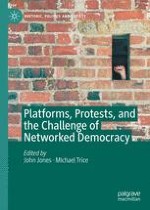2020 | OriginalPaper | Chapter
17. The Fifth Estate Joins the Debate: The Political Roles of Live Commentary in the First Televised Presidential Debate Between Hillary Clinton and Donald Trump
Authors : Craig T. Robertson, William H. Dutton
Published in: Platforms, Protests, and the Challenge of Networked Democracy
Publisher: Springer International Publishing
Activate our intelligent search to find suitable subject content or patents.
Select sections of text to find matching patents with Artificial Intelligence. powered by
Select sections of text to find additional relevant content using AI-assisted search. powered by
